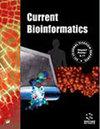A Review of Drug-related Associations Prediction Based on Artificial Intelligence Methods
IF 2.9
3区 生物学
Q3 BIOCHEMICAL RESEARCH METHODS
引用次数: 0
Abstract
Predicting drug-related associations is an important task in drug development and discovery. With the rapid advancement of high-throughput technologies and various biological and medical data, artificial intelli-gence (AI), especially progress in machine learning (ML) and deep learning (DL), has paved a new way for the development of drug-related associations prediction. Many studies have been conducted in the literature to predict drug-related associations. This study looks at various computational methods used for drug-related associations prediction with the hope of getting a better insight into the computational methods used. The various computational methods involved in drug-related associations prediction have been re-viewed in this work. We have first summarized the drug, target, and disease-related mainstream public da-tasets. Then, we have discussed existing drug similarity, target similarity, and integrated similarity measurement approaches and grouped them according to their suita-bility. We have then comprehensively investigated drug-related associations and introduced relevant computa-tional methods. Finally, we have briefly discussed the challenges involved in predicting drug-related associa-tions. We discovered that quite a few studies have used implemented ML and DL approaches for drug-related associations prediction. The key challenges were well noted in constructing datasets with reasonable neg-ative samples, extracting rich features, and developing powerful prediction models or ensemble strategies. This review presents useful knowledge and future challenges on the subject matter with the hope of promoting further studies on predicting drug-related as-sociations.基于人工智能方法的药物相关关联预测研究进展
预测药物相关性是药物开发和发现中的一项重要任务。随着高通量技术和各种生物和医学数据的快速发展,人工智能(AI),特别是机器学习(ML)和深度学习(DL)的进步,为药物相关性预测的发展铺平了新的道路。文献中已经进行了许多研究来预测与毒品有关的关联。这项研究着眼于用于药物相关性预测的各种计算方法,希望更好地了解所使用的计算方法。在这项工作中,重新审视了与药物相关的关联预测中涉及的各种计算方法。我们首先总结了药物、靶点和疾病相关的主流公共数据集。然后,我们讨论了现有的药物相似性、靶标相似性和综合相似性测量方法,并根据其适用性对其进行了分组。然后,我们全面调查了与毒品有关的关联,并介绍了相关的计算方法。最后,我们简要讨论了预测药物相关性的挑战。我们发现,相当多的研究使用了ML和DL方法来预测药物相关性。关键挑战在构建具有合理负样本的数据集、提取丰富的特征以及开发强大的预测模型或集成策略方面得到了充分注意。这篇综述介绍了这一主题的有用知识和未来的挑战,希望促进对预测毒品相关社会的进一步研究。
本文章由计算机程序翻译,如有差异,请以英文原文为准。
求助全文
约1分钟内获得全文
求助全文
来源期刊

Current Bioinformatics
生物-生化研究方法
CiteScore
6.60
自引率
2.50%
发文量
77
审稿时长
>12 weeks
期刊介绍:
Current Bioinformatics aims to publish all the latest and outstanding developments in bioinformatics. Each issue contains a series of timely, in-depth/mini-reviews, research papers and guest edited thematic issues written by leaders in the field, covering a wide range of the integration of biology with computer and information science.
The journal focuses on advances in computational molecular/structural biology, encompassing areas such as computing in biomedicine and genomics, computational proteomics and systems biology, and metabolic pathway engineering. Developments in these fields have direct implications on key issues related to health care, medicine, genetic disorders, development of agricultural products, renewable energy, environmental protection, etc.
 求助内容:
求助内容: 应助结果提醒方式:
应助结果提醒方式:


